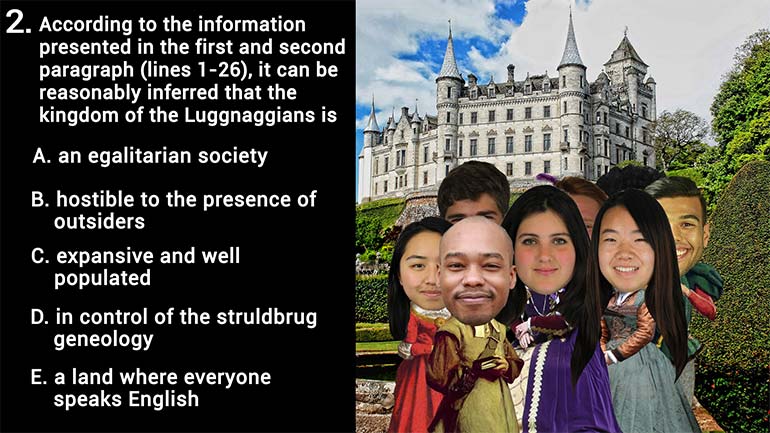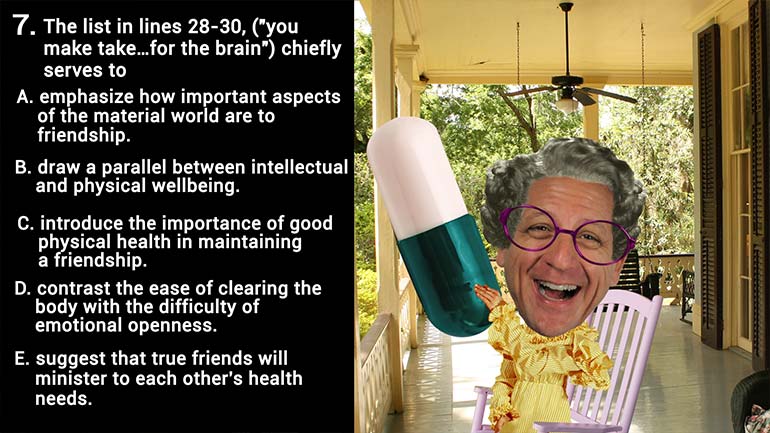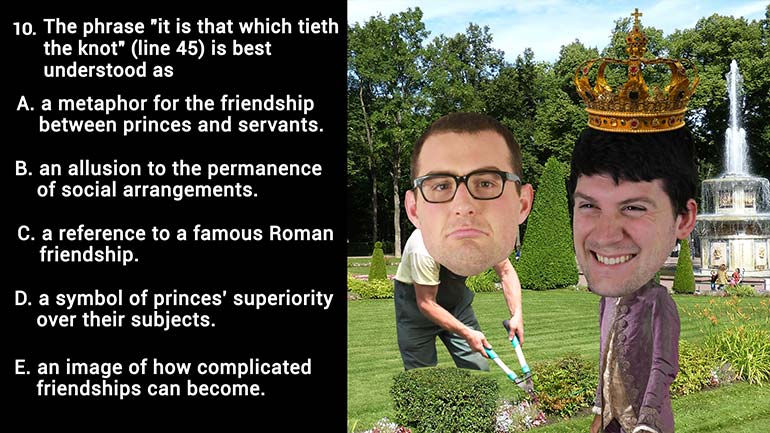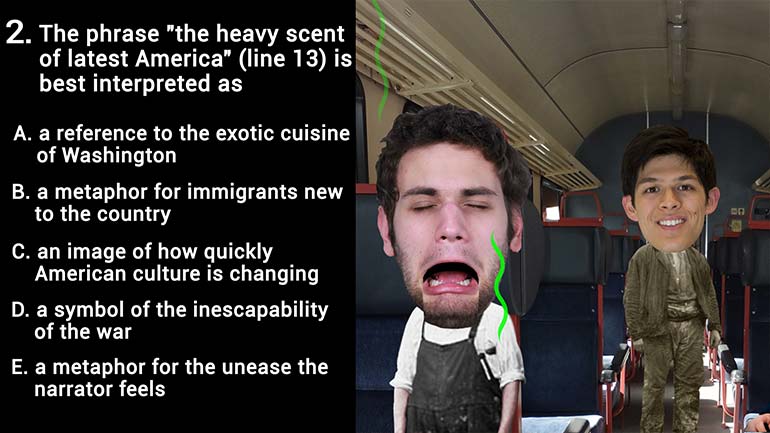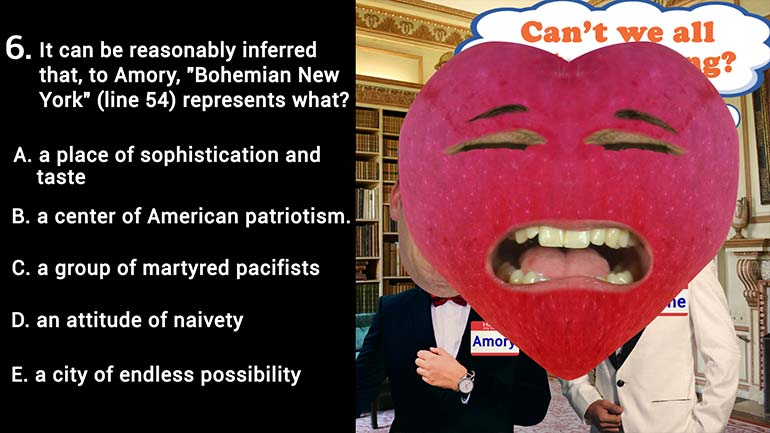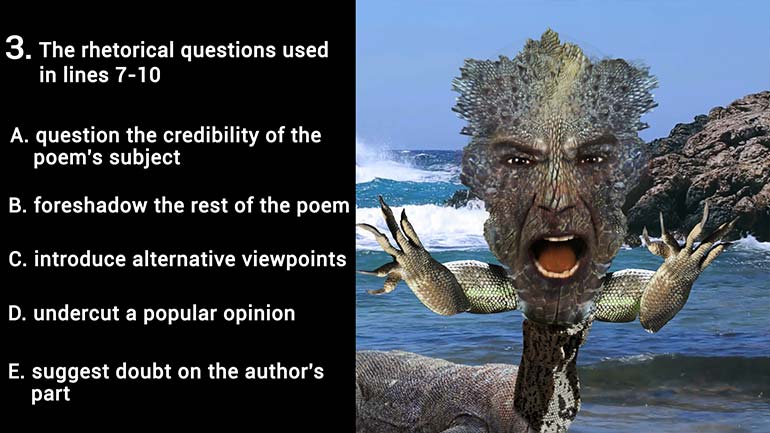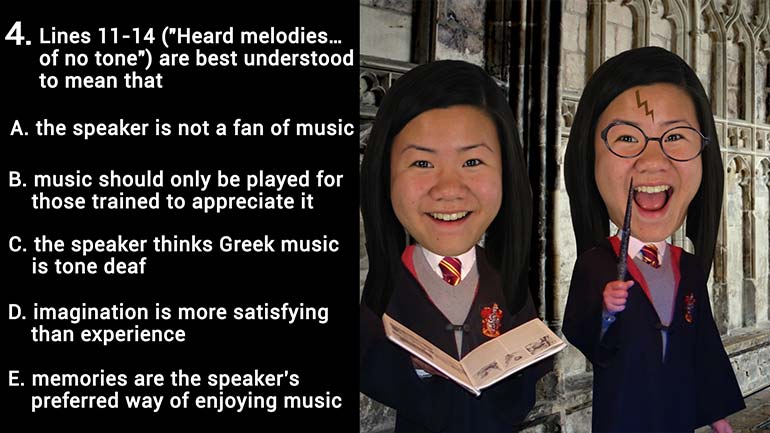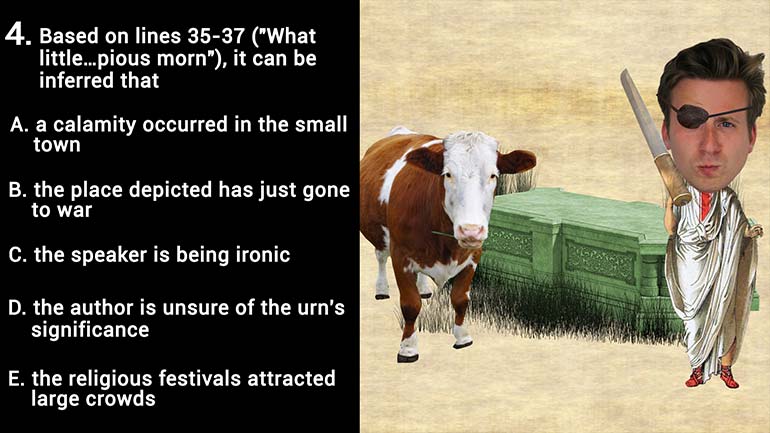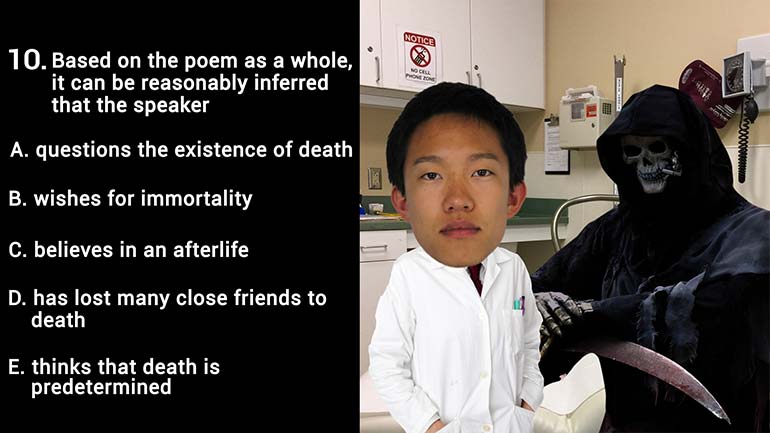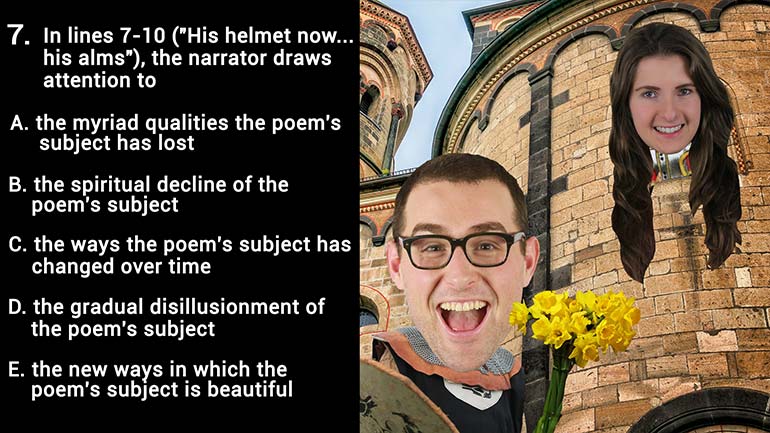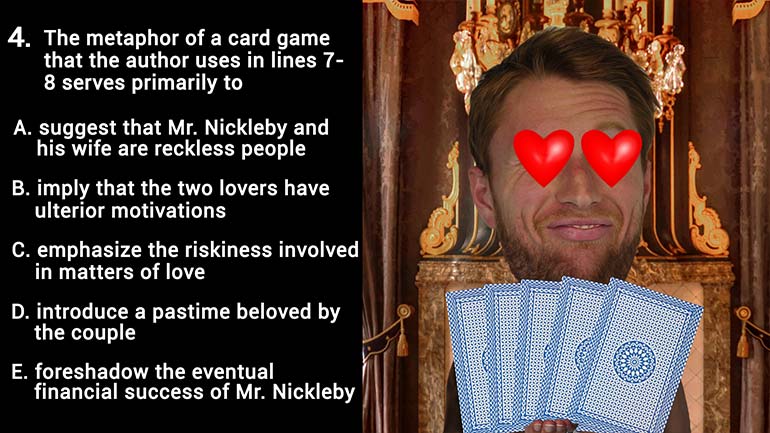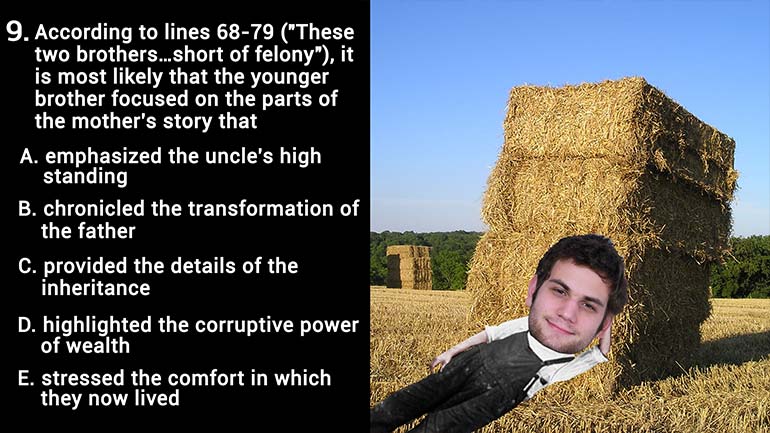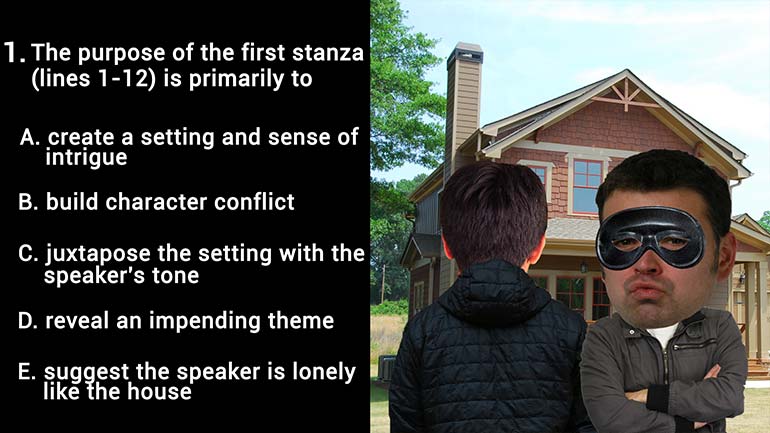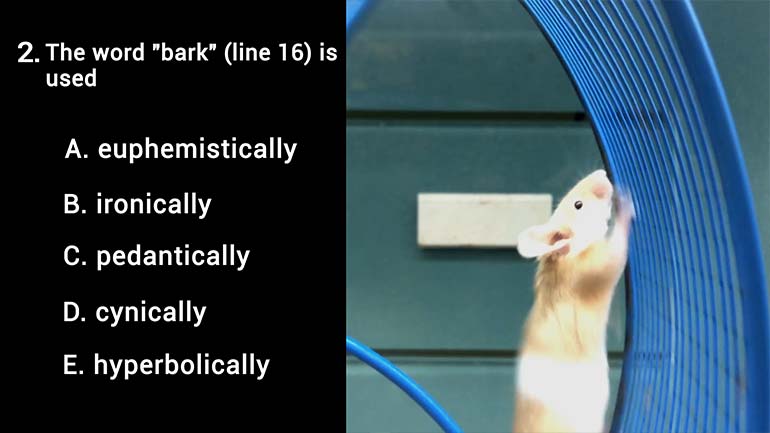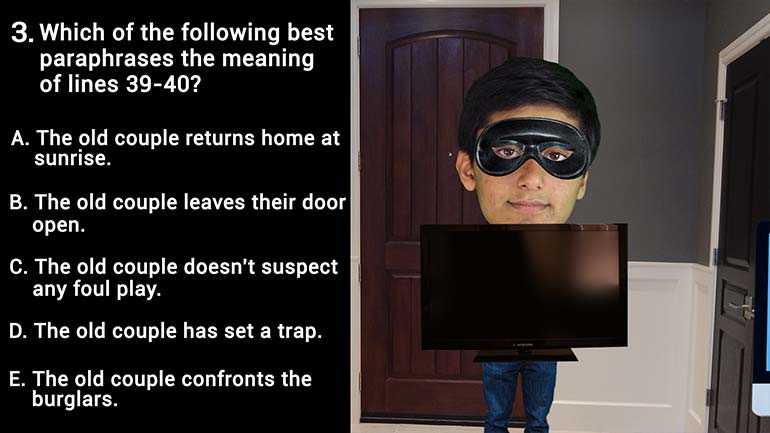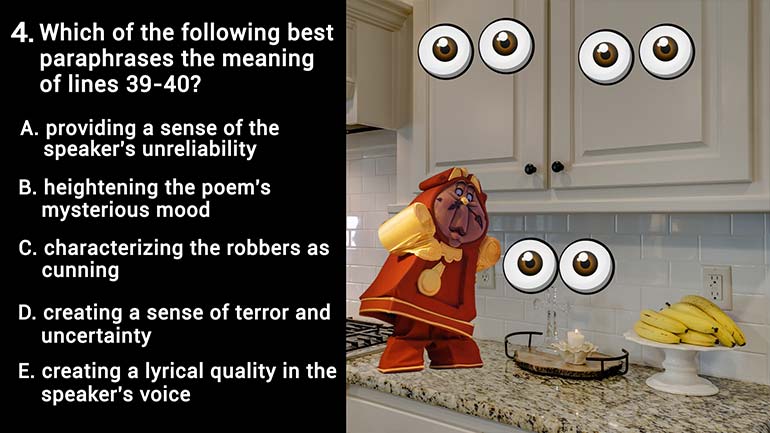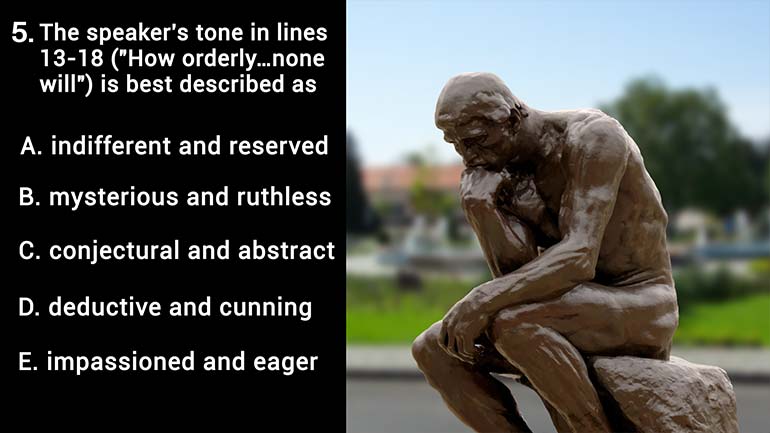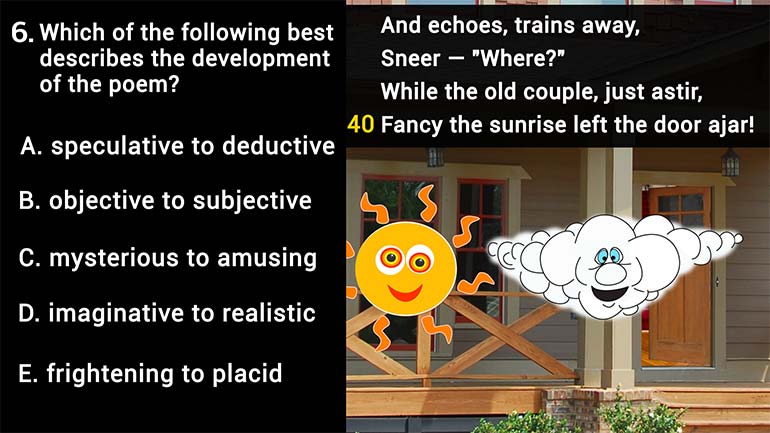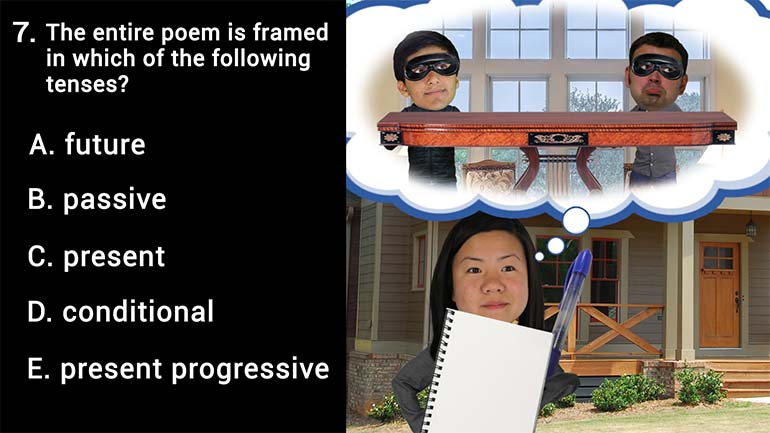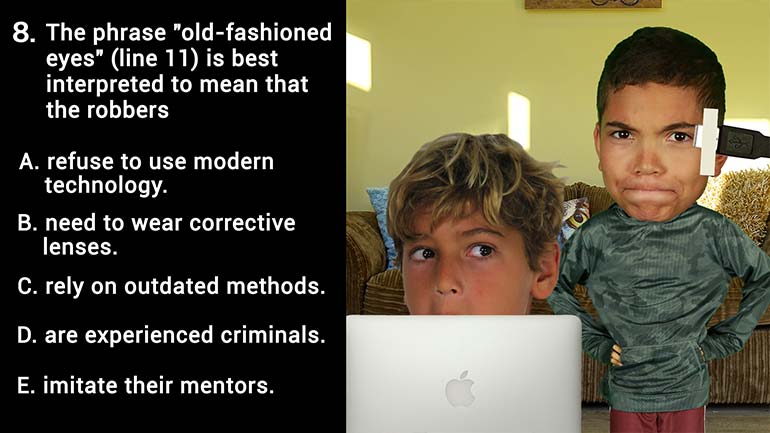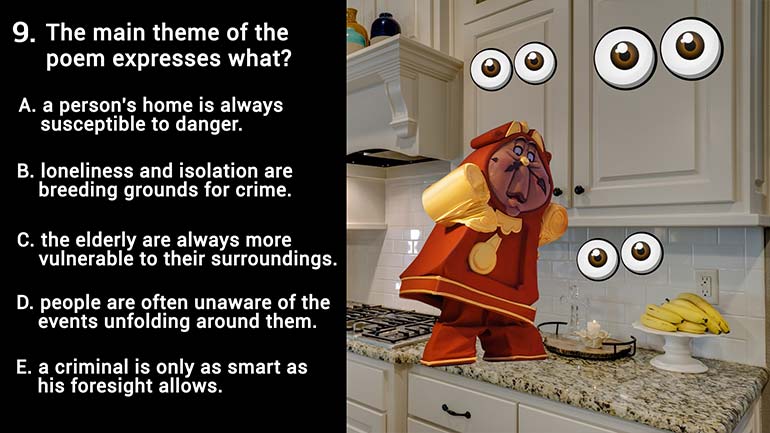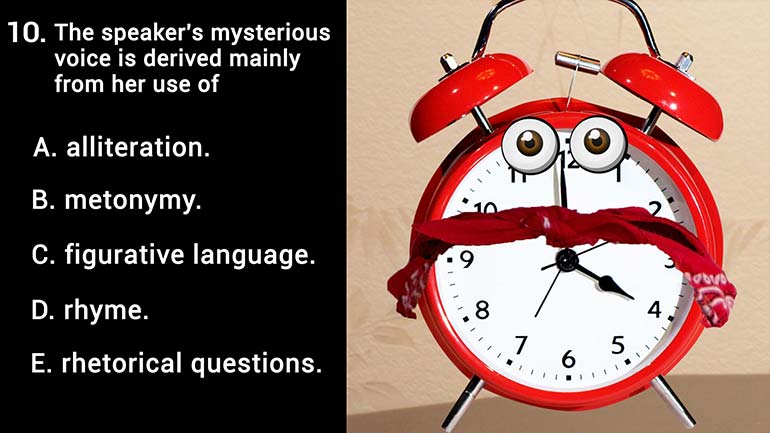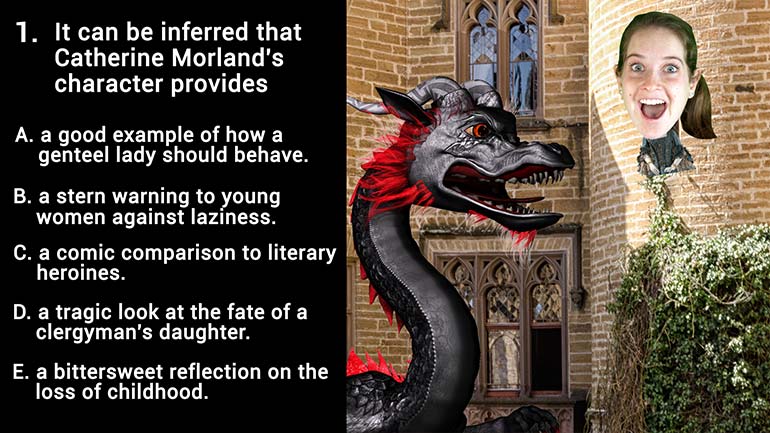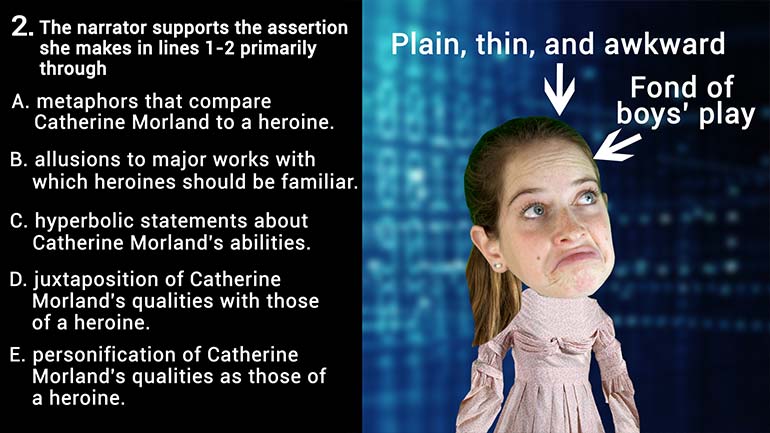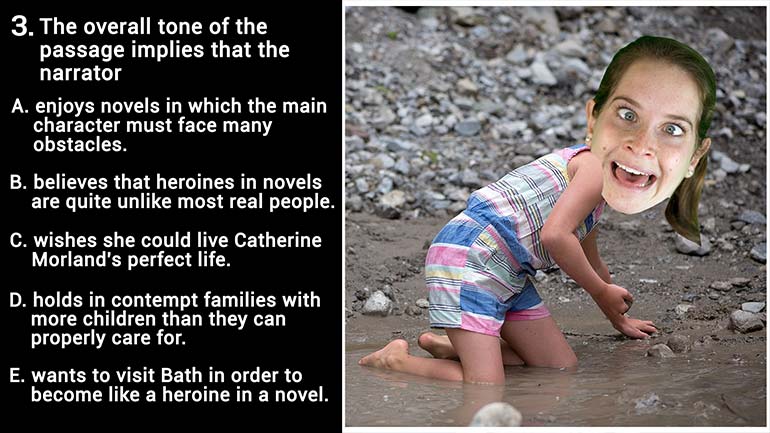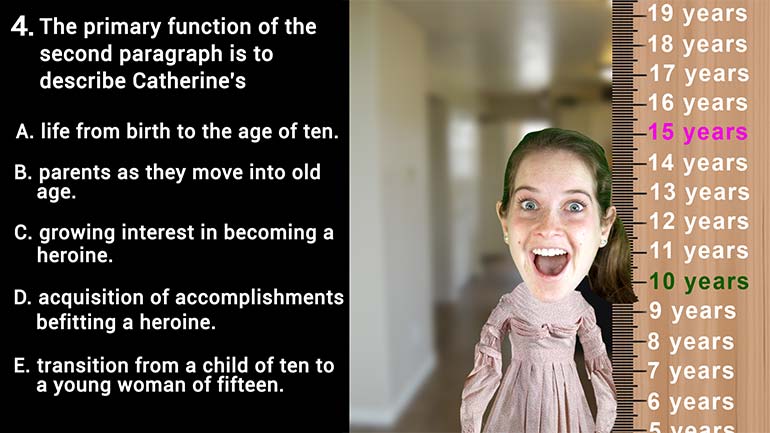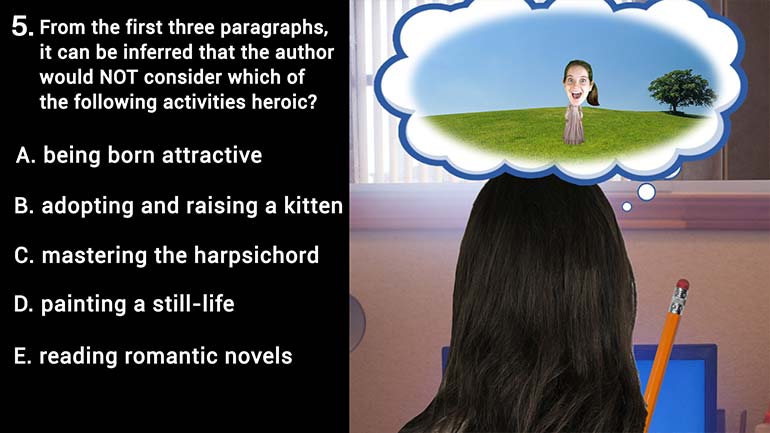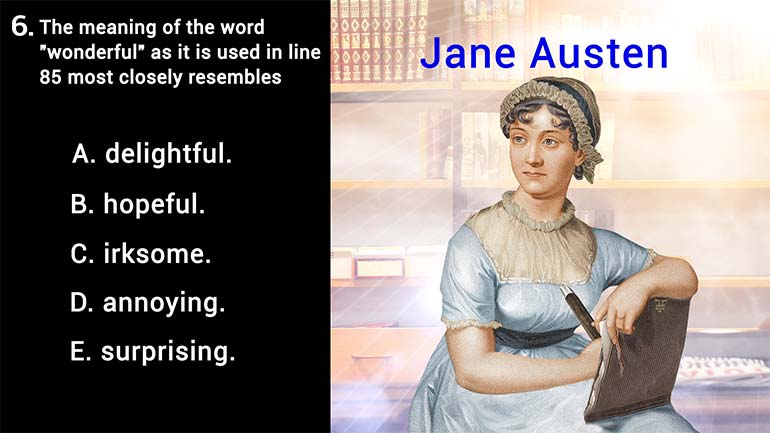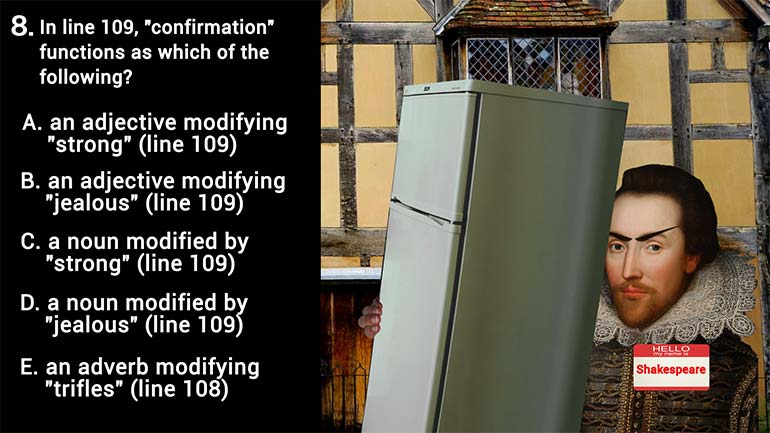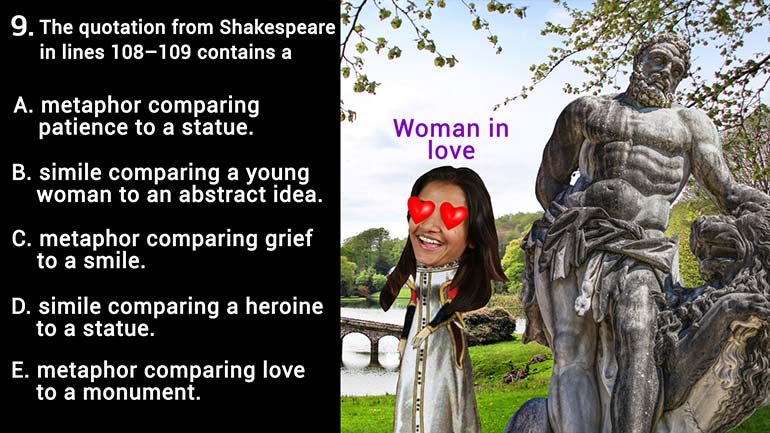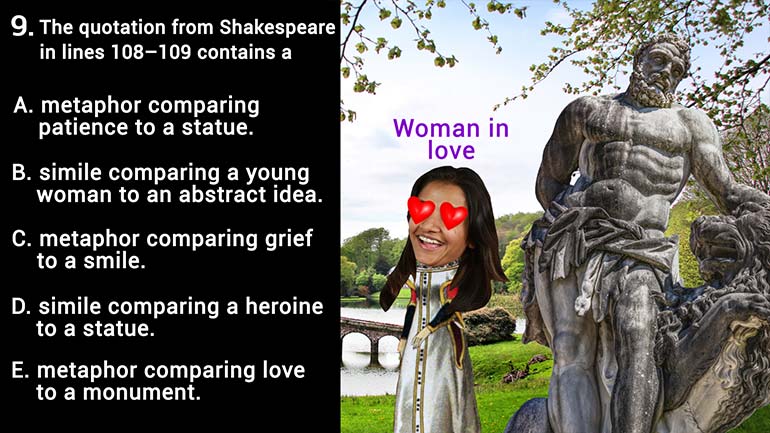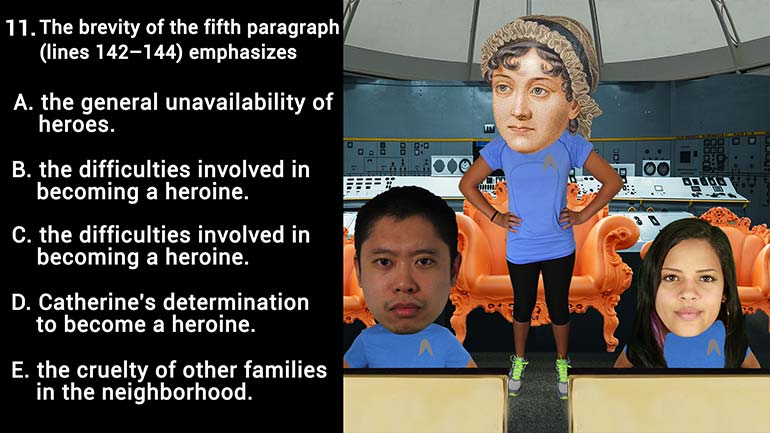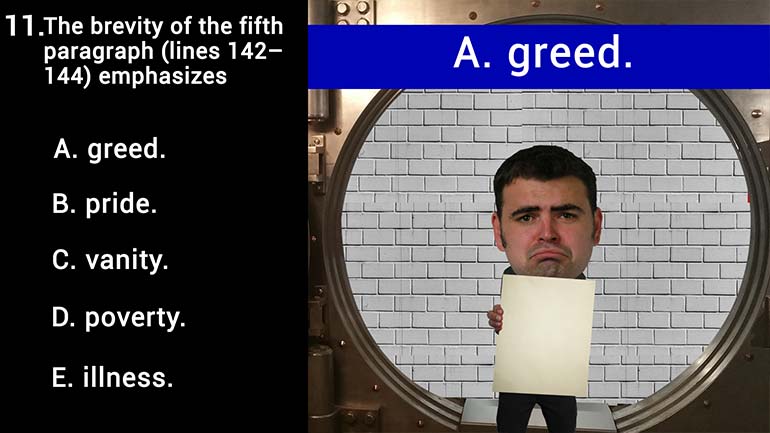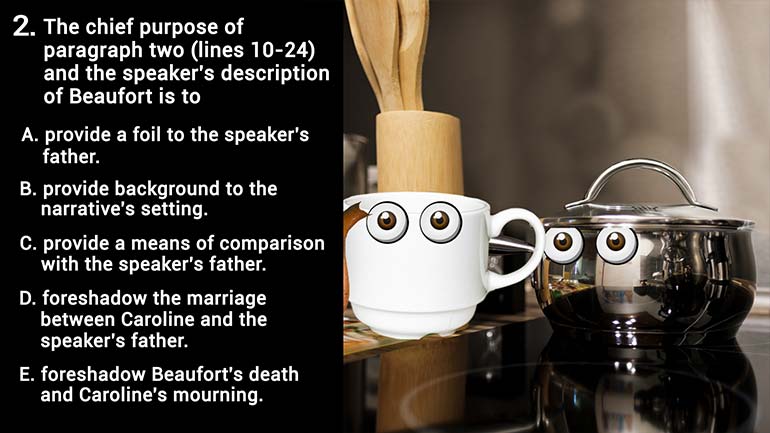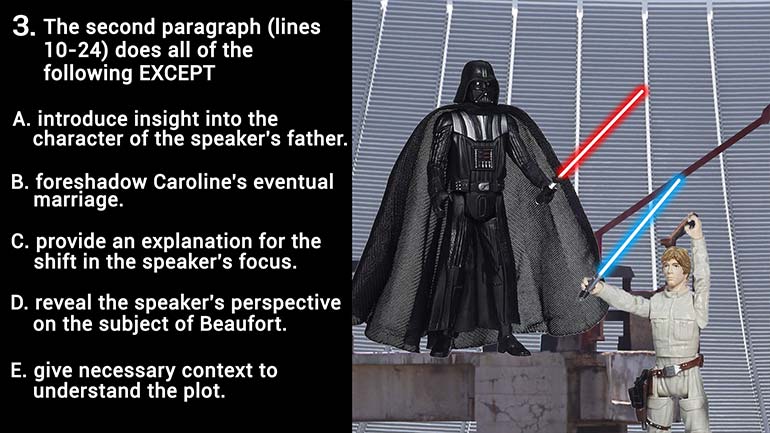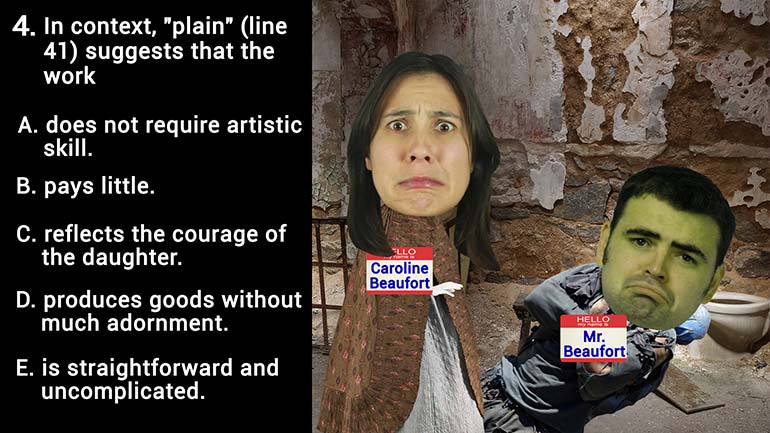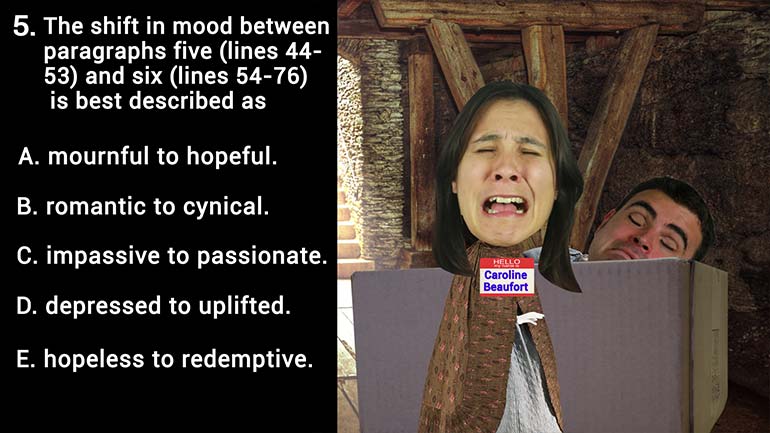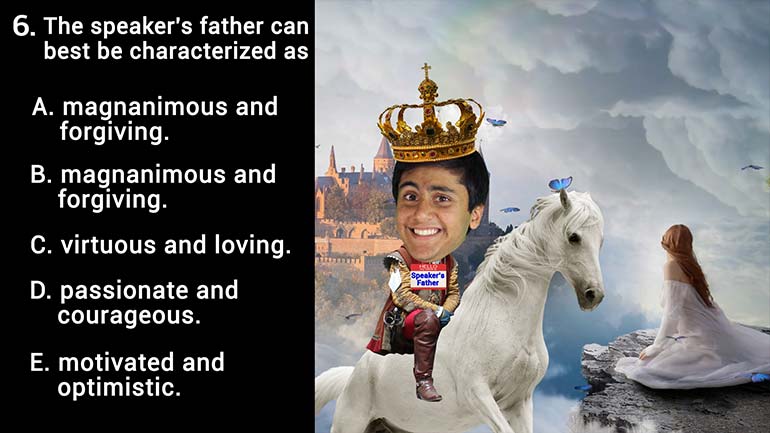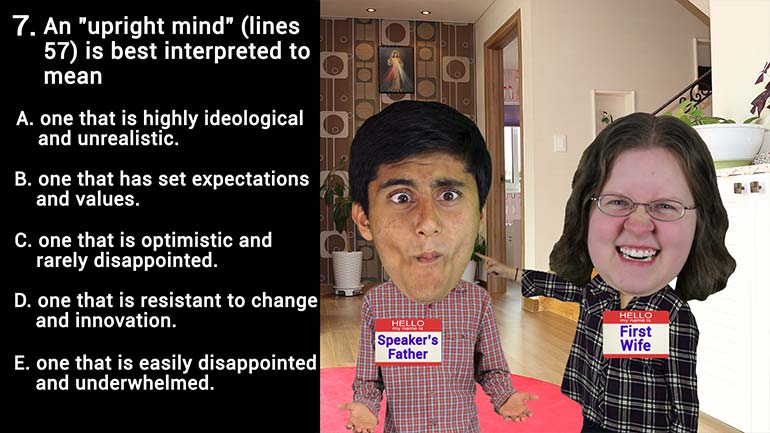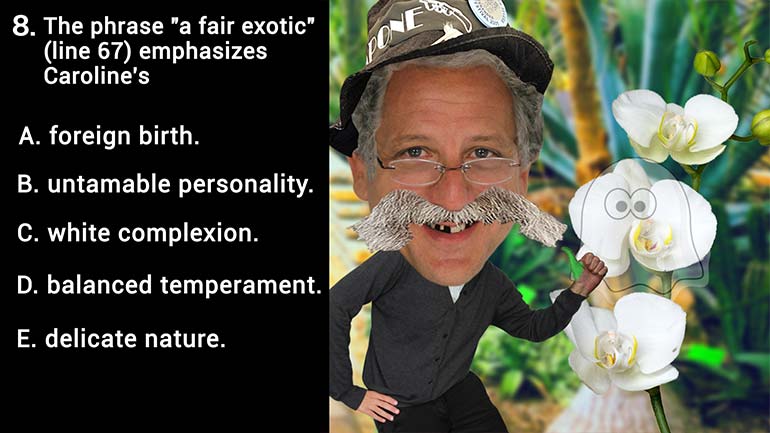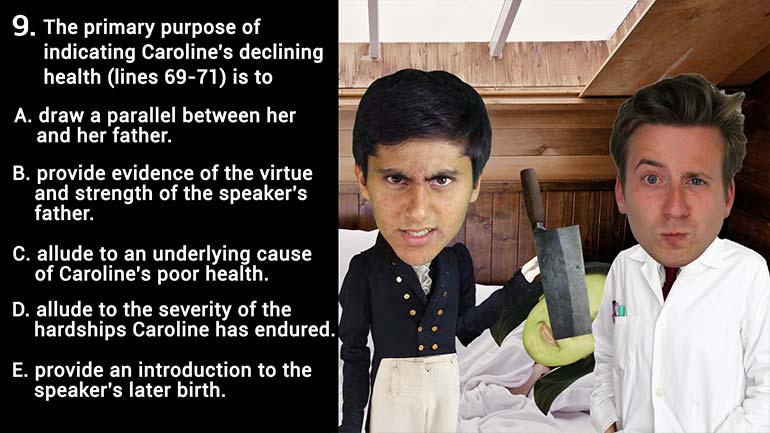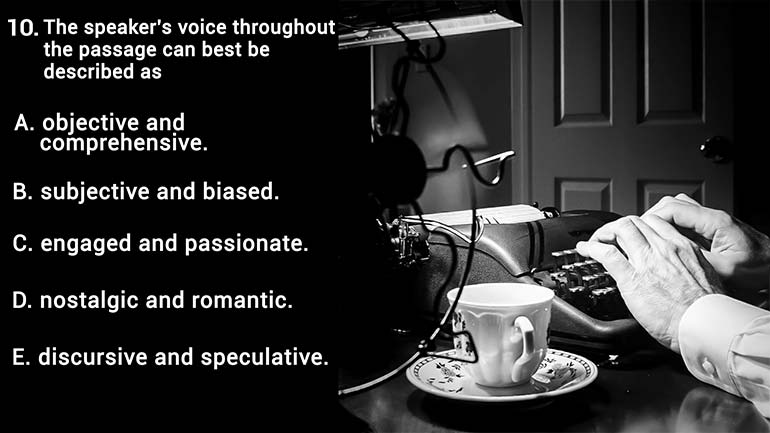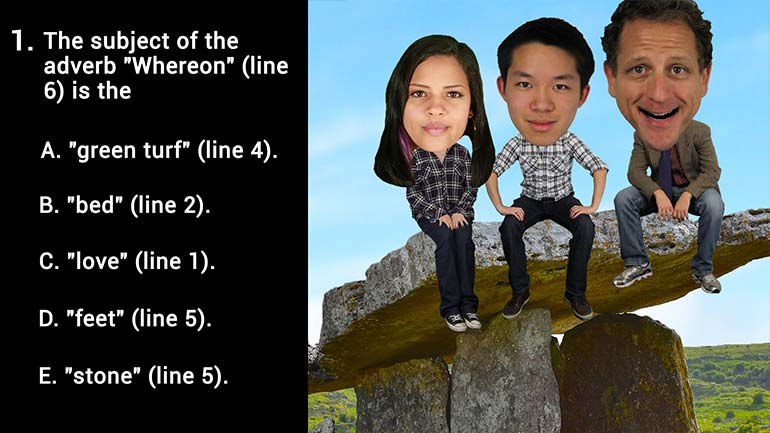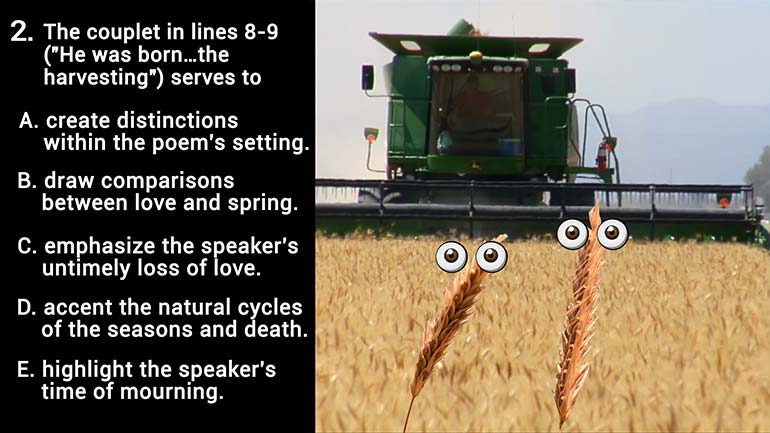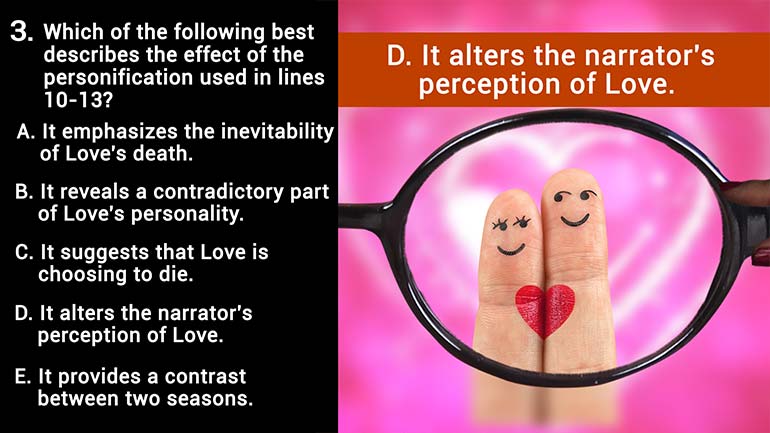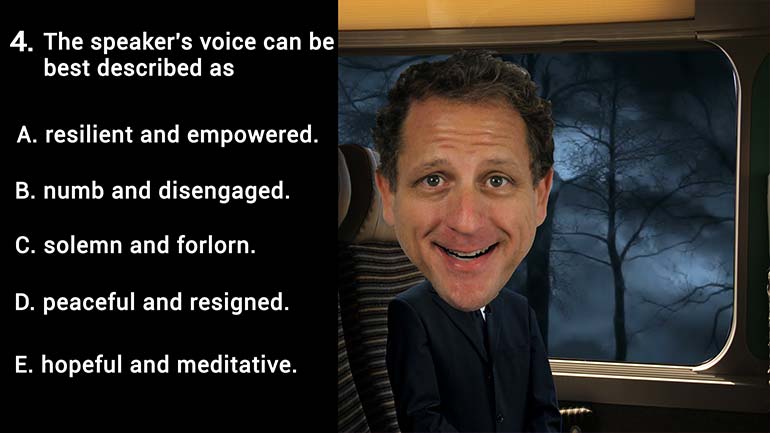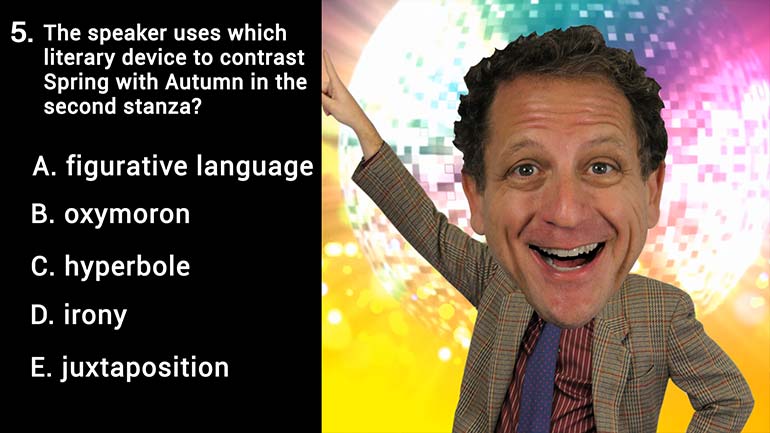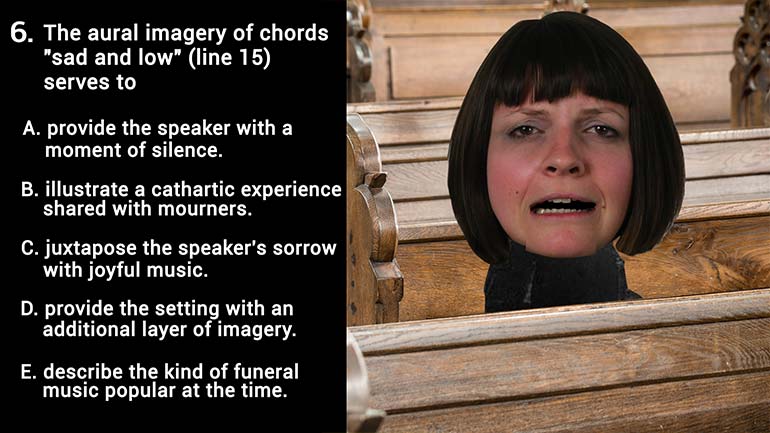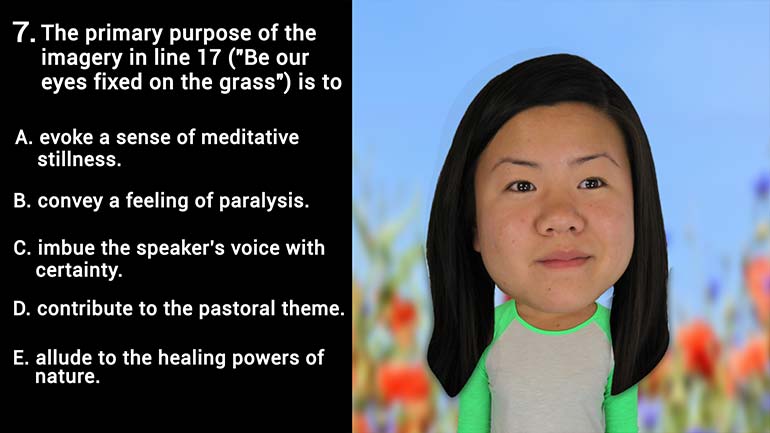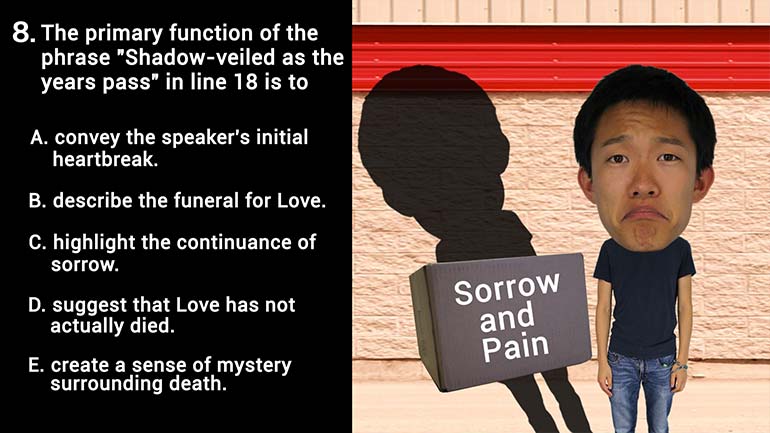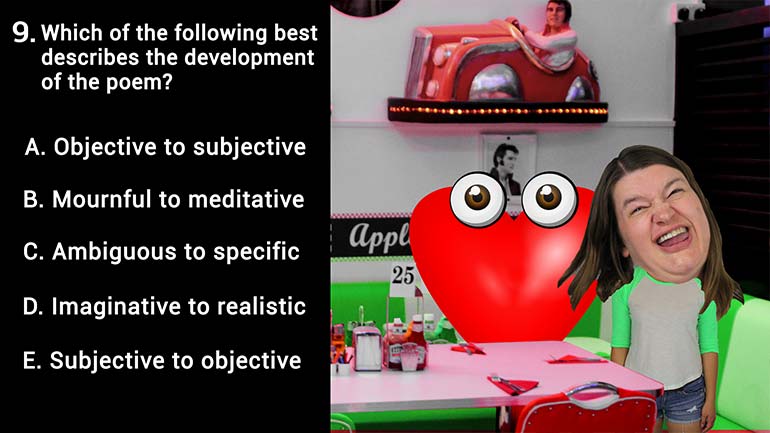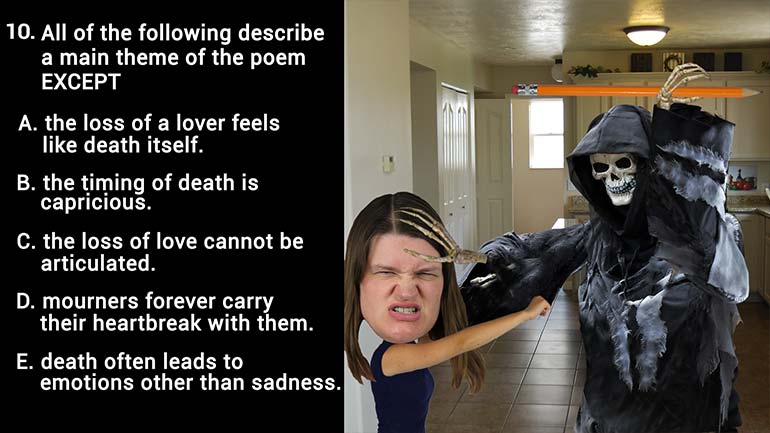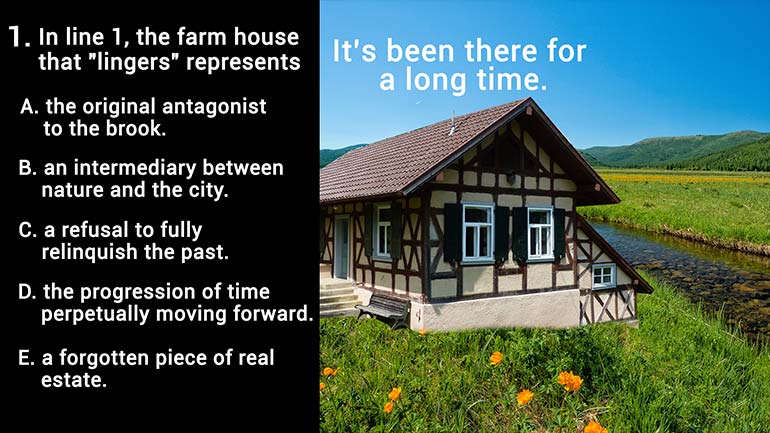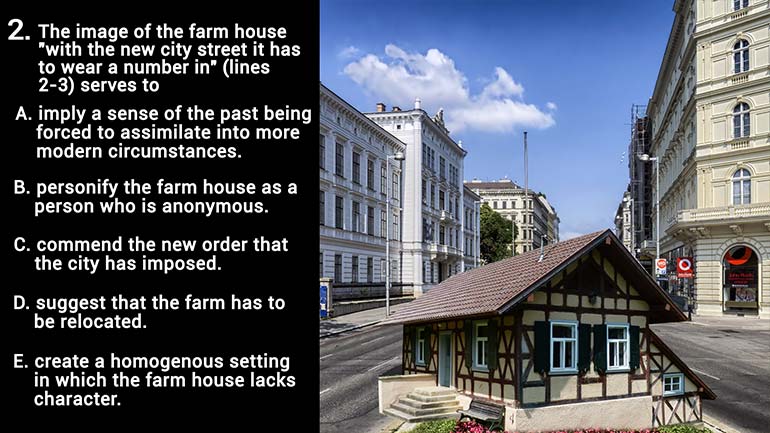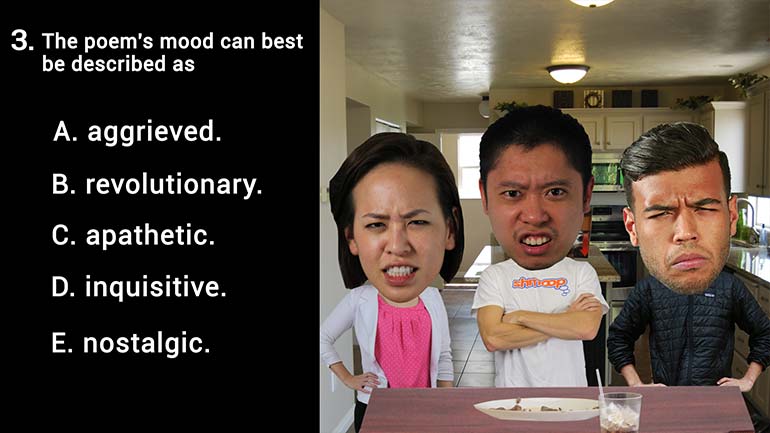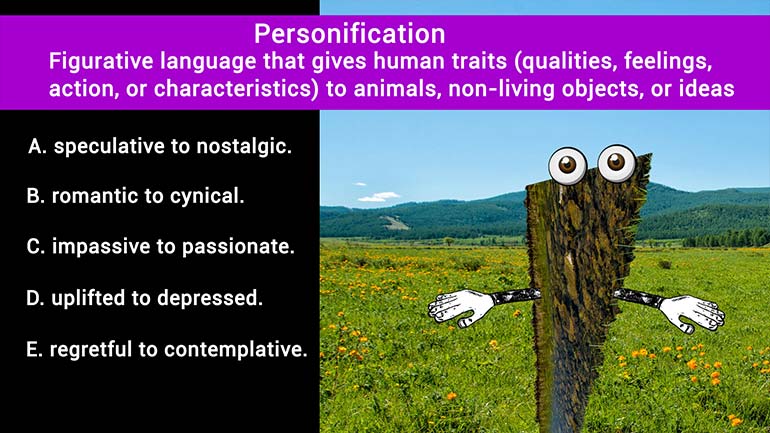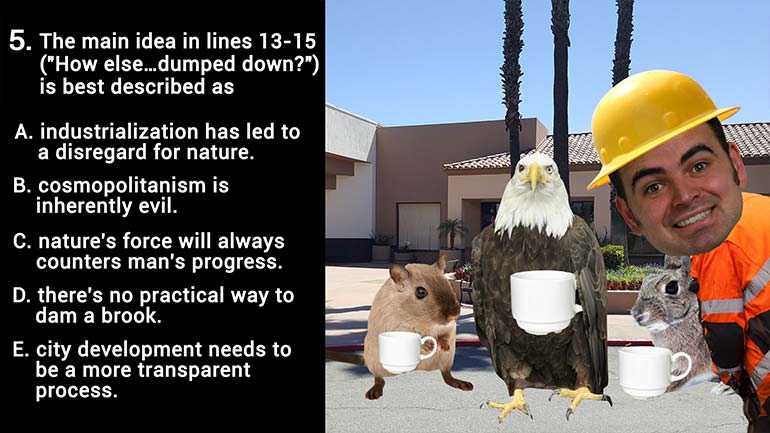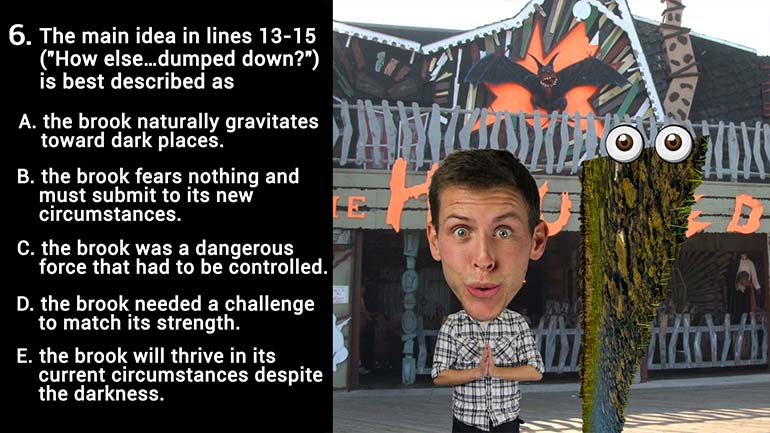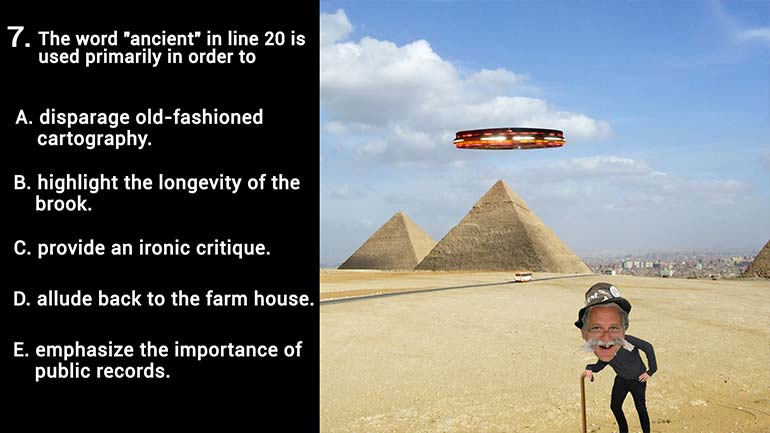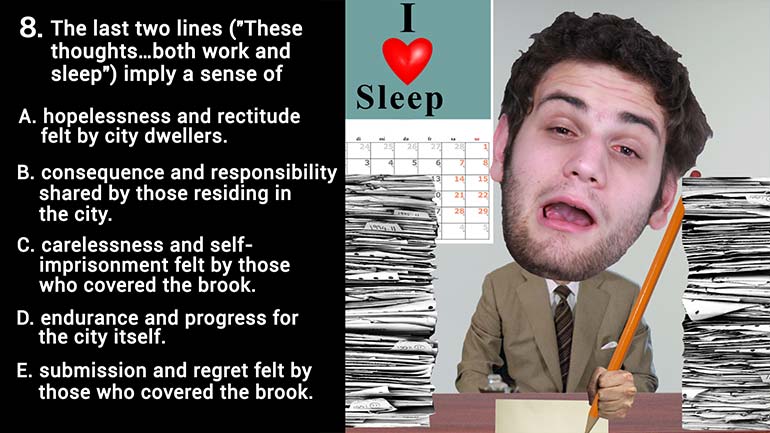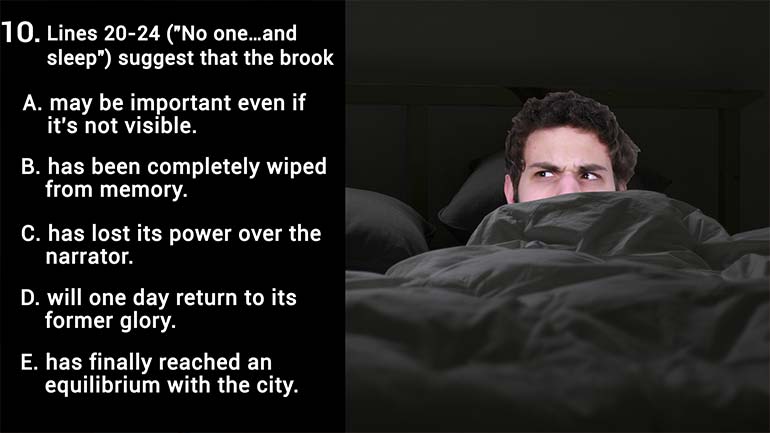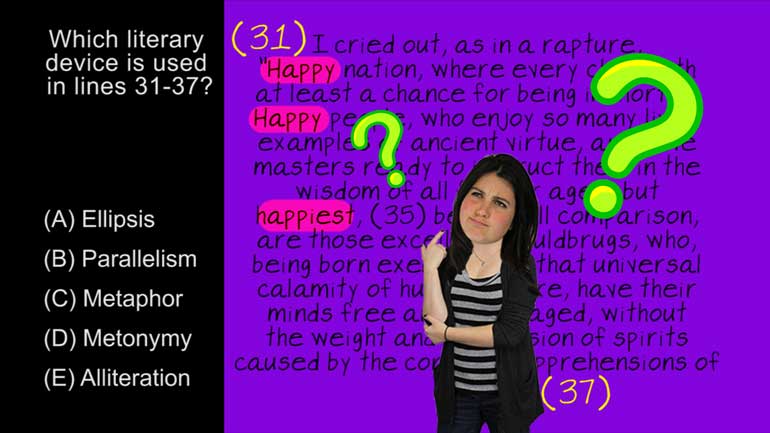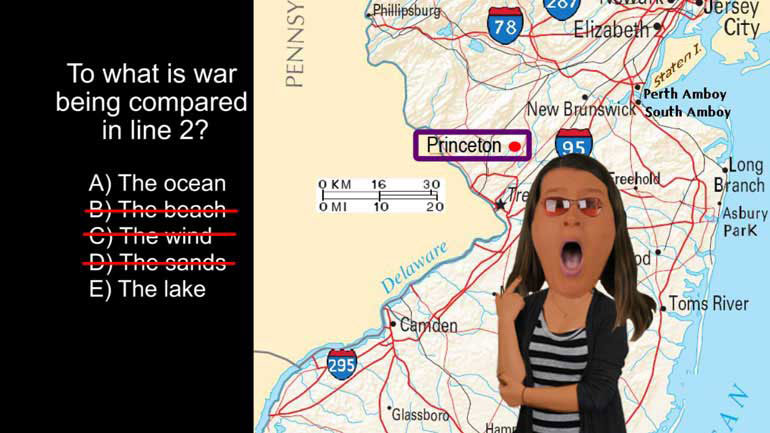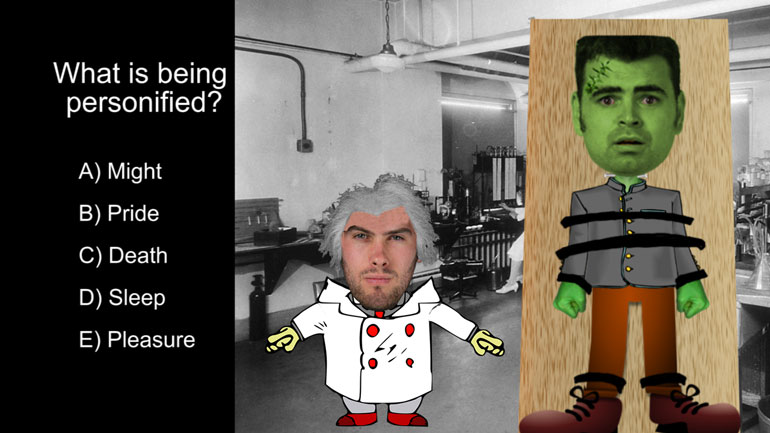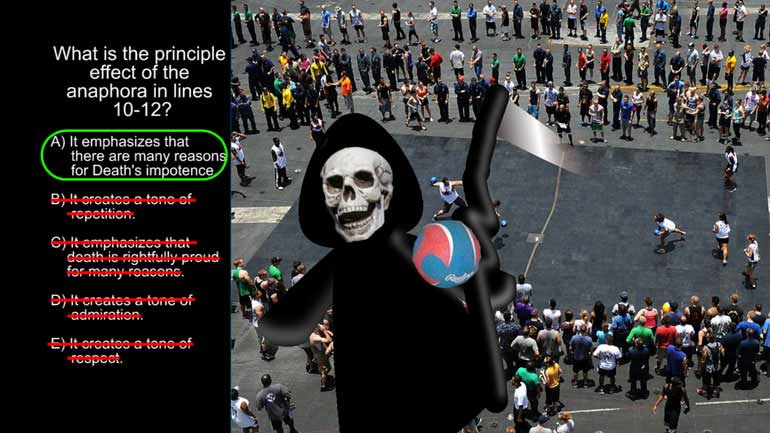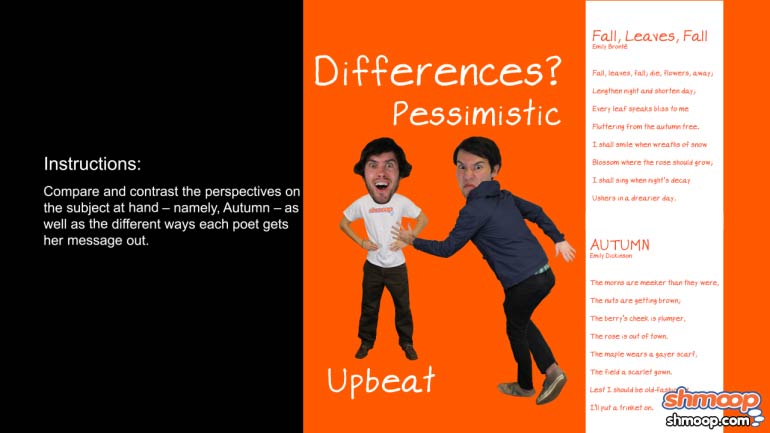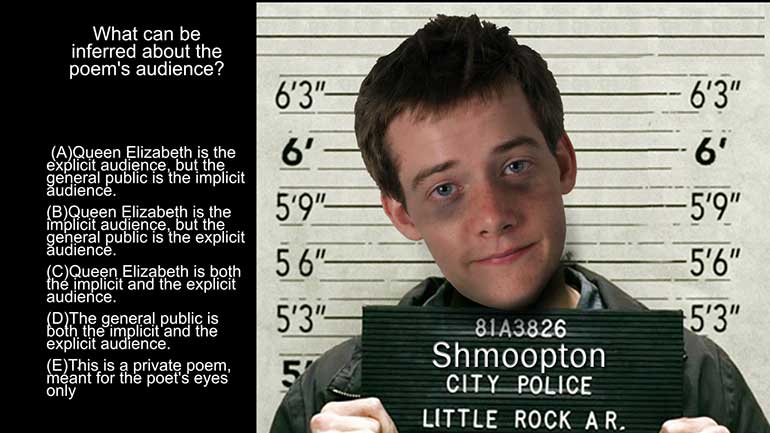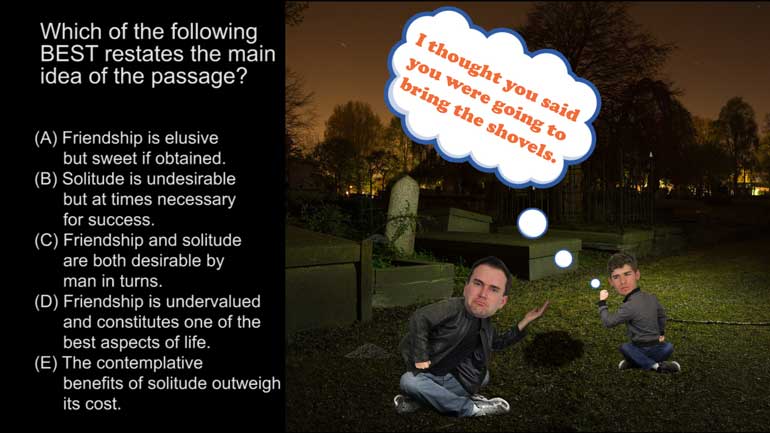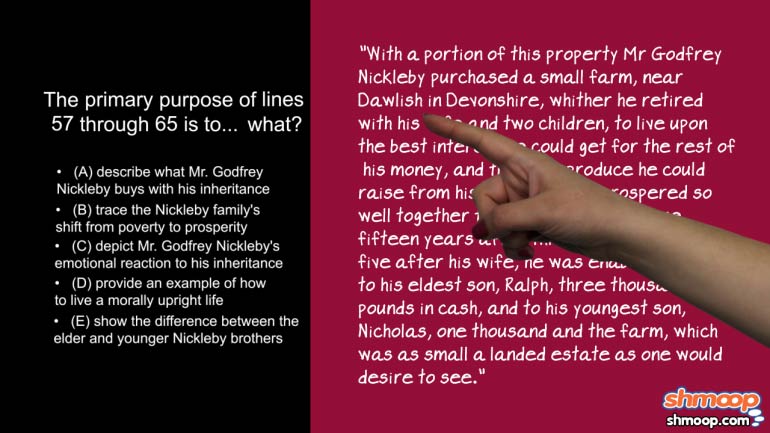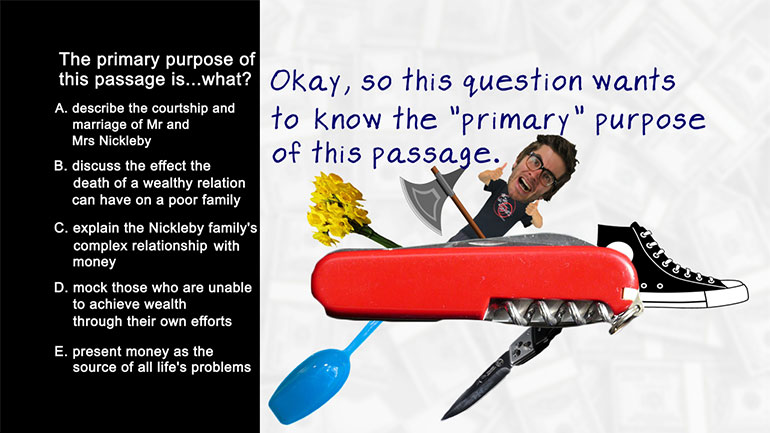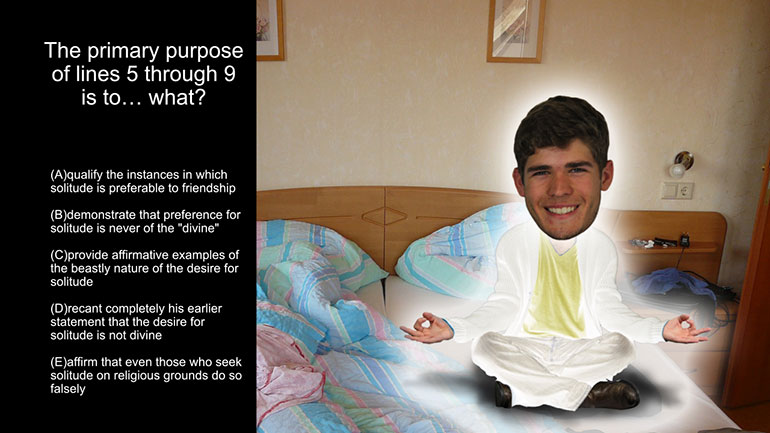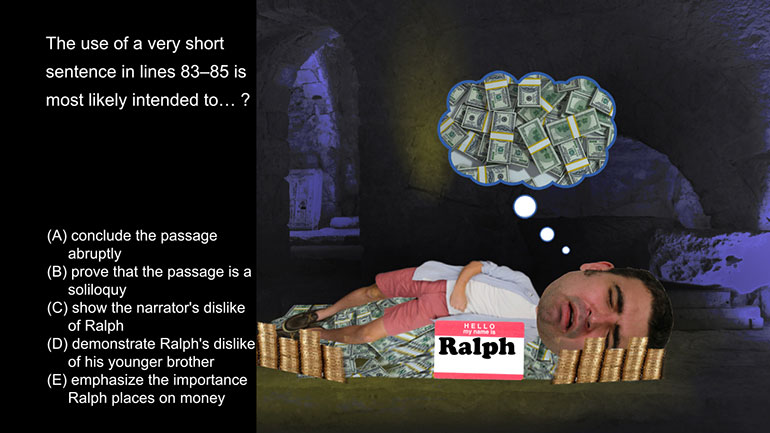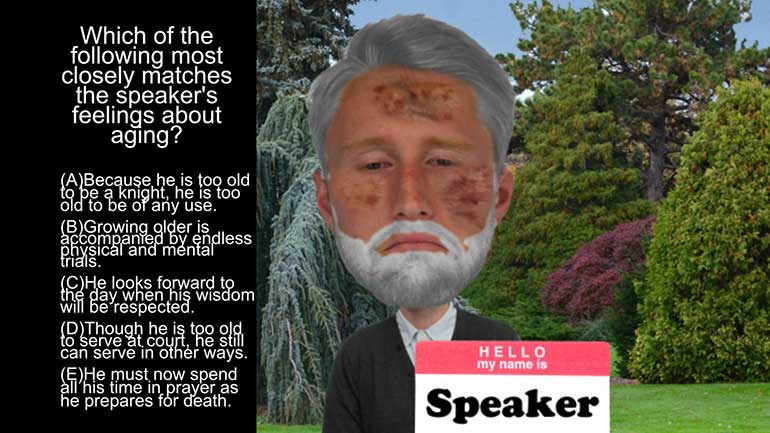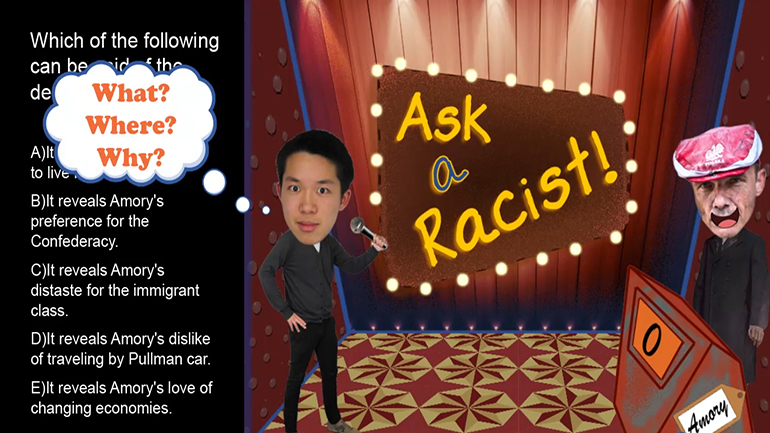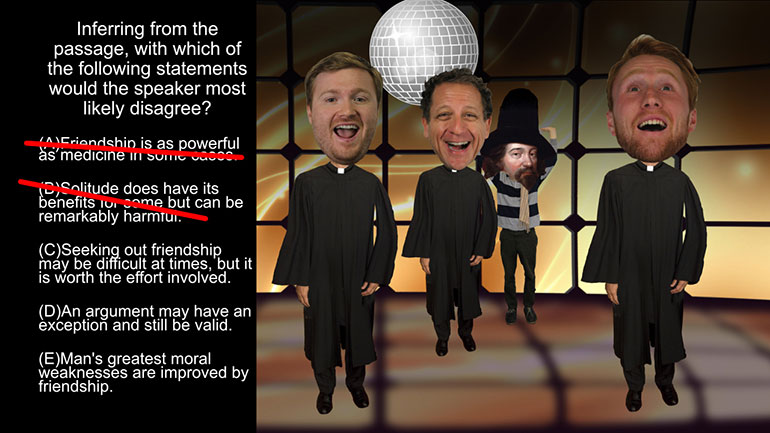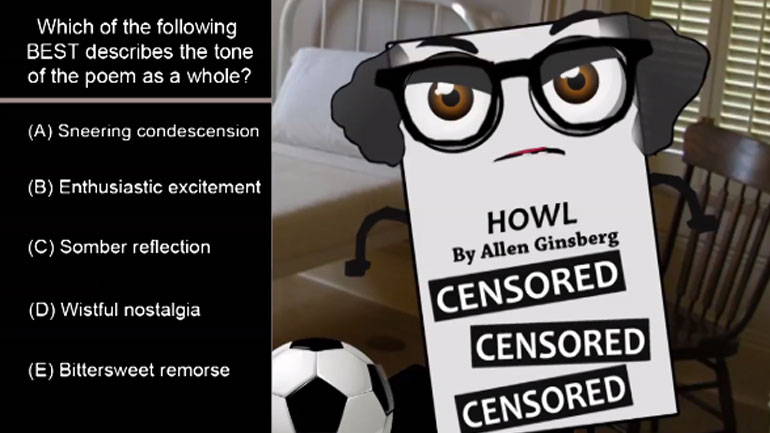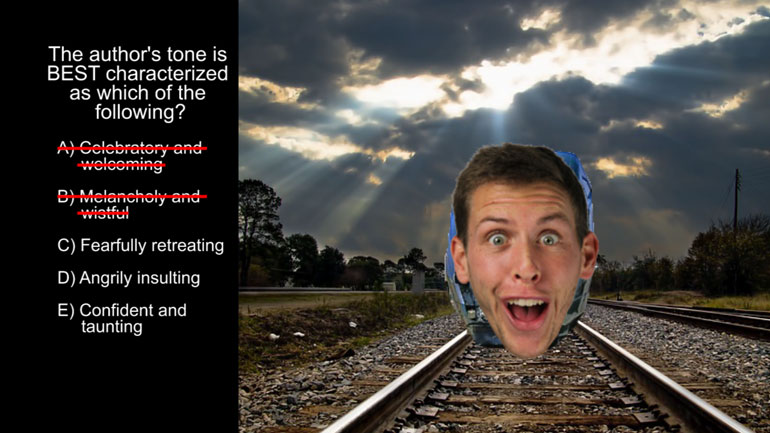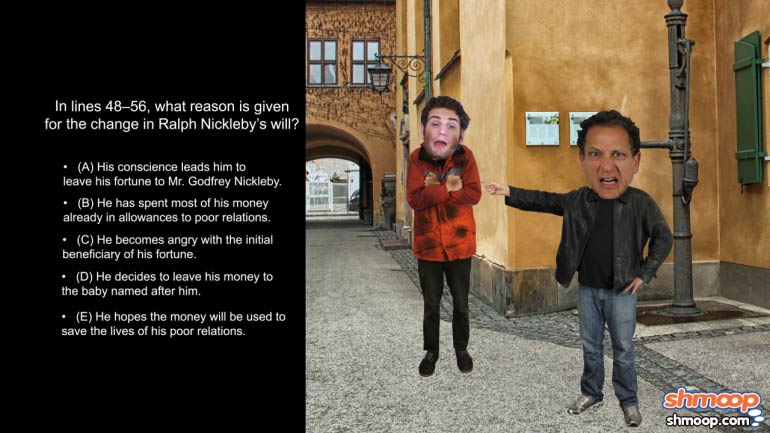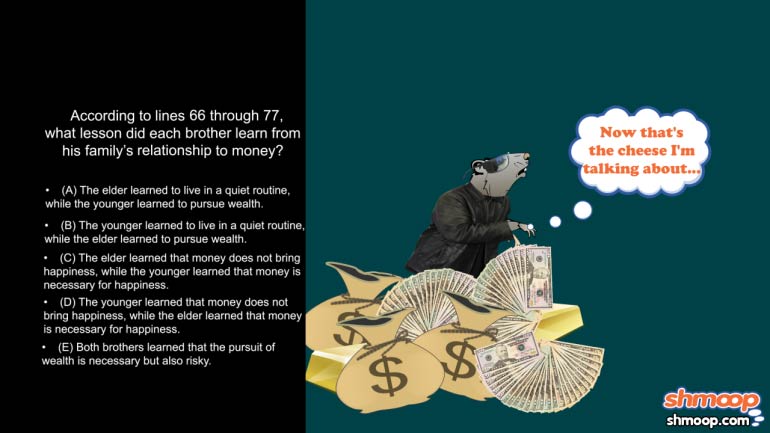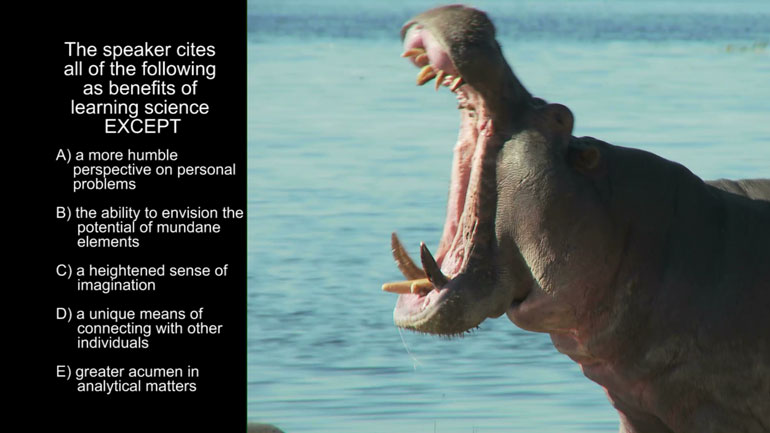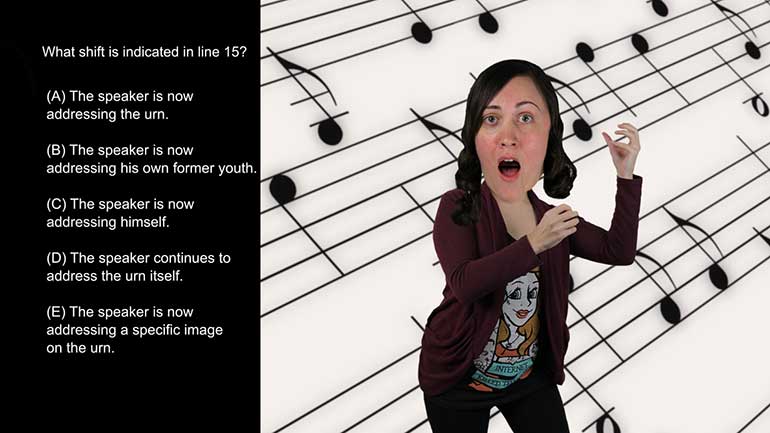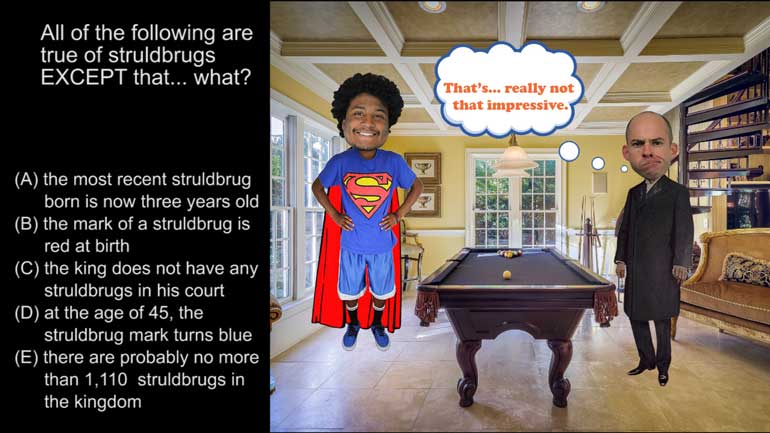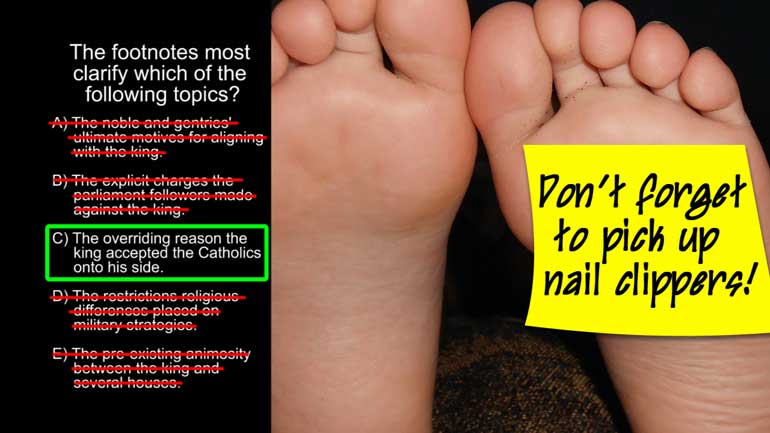ShmoopTube
Where Monty Python meets your 10th grade teacher.
Search Thousands of Shmoop Videos
AP English Literature Videos 112 videos
According to the information presented in the first and second paragraph (lines 1-26), it can be reasonably inferred that the kingdom of the Luggna...
In line 27, the adjective "inexpressible" is used
The main idea of the second paragraph (lines 24-33) can best be restated that
AP English Literature and Composition 1.8 Passage Drill 4 221 Views
Share It!
Description:
AP English Literature and Composition 1.8 Passage Drill 4. What shift is indicated in line 15?
Transcript
- 00:03
Here's your shmoop du jour, brought to you by Mortality. Because living forever sounds
- 00:08
like such a drag.
- 00:18
What shift is indicated in line 15?
- 00:22
And here are the potential answers...
- 00:28
In poetry, a shift is something like a key change in music.
Full Transcript
- 00:33
The poem goes from doing one thing... to doing another.
- 00:35
UNLIKE in music, it's rarely because the writer is having trouble... hitting the high notes...
- 00:41
So let's take a look at line 15 and see what we can see.
- 00:44
Although... we want to see what SHIFT takes place, so we should also look at the few lines
- 00:48
that precede it:
- 00:49
Heard melodies are sweet, but those unheard Are sweeter; therefore, ye soft pipes, play
- 00:55
on; Not to the sensual ear, but, more endear'd,
- 00:59
Pipe to the spirit ditties of no tone: Fair youth, beneath the trees, thou canst not leave
- 01:05
Line 15 is the last one... the one that starts with "fair youth."
- 01:09
So... what changes? Is he suddenly addressing the urn?
- 01:13
Nah... he's been talking to the urn the entire time. Apparently, his silverware already had
- 01:17
plans. Is he now addressing his own former youth?
- 01:21
Nope. He's not talking to himself... although, that would probably be an improvement, from
- 01:25
a social standpoint...
- 01:26
...instead, he's talking to this "fair youth beneath the trees"... whom he has spotted
- 01:31
on the side of the urn. Let's keep going...
- 01:34
Well, because we just established that he isn't addressing himself, we can rule out
- 01:38
option C, too...
- 01:39
...and D can't be it, because he's no longer talking to the urn in general -- he's talking
- 01:43
to a SPECIFIC image on the urn...
- 01:46
...which is option E.
- 01:48
Remind us not to attend any of this guy's dinner parties...
Related Videos
AP English Literature and Composition 1.2 Passage Drill 4. As which of the following is the object being personified?
AP English Literature and Composition 1.4 Passage Drill 3. How is Burne's view of pacifism best characterized in lines 57 through 67?
AP English Literature and Composition 1.6 Passage Drill 5. Death is primarily characterized as what?
AP English Literature and Composition 1.7 Passage Drill 5. Which line indicates the turn or shift in this poem?
AP English Literature and Composition 1.9 Passage Drill 4. Lines 32-34 are best understood to mean what?
